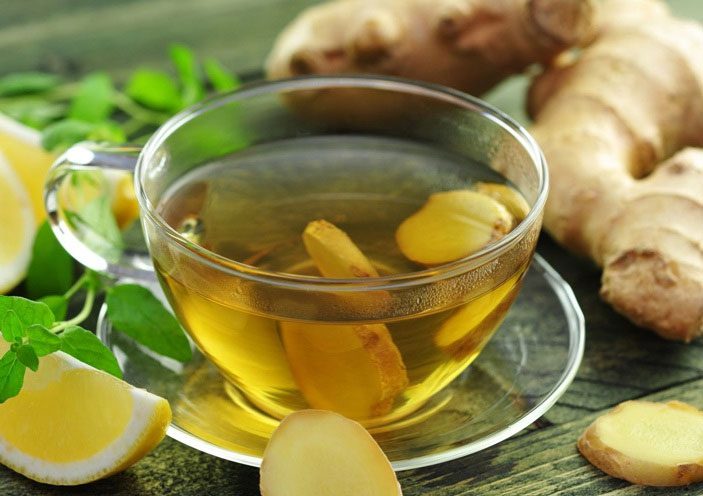Drinking ginger tea, eating plenty of greens, and consuming fruits incorrectly will not help cure a cold and may exacerbate symptoms.
During the autumn and winter seasons, as the weather changes, many people catch colds and turn to ginger tea, perilla porridge, and an abundance of vegetables and fruits. However, according to Dr. Wu Kuo-Pin, Director of the Xinyitang Clinic in Taiwan (China), this can be counterproductive if not done correctly.
On the other hand, scientists have conducted research over many years to determine the effectiveness of these remedies, including the appropriate frequency of use and the best formulas for optimal results. However, studies are often small-scale or ineffective, which means the scientific community has yet to confirm their actual benefits. If symptoms worsen, such as difficulty breathing, persistent high fever, or if there is no improvement after more than a week, it is advisable to seek medical help.
How to Properly Drink Ginger Tea
According to a review from Tabriz University of Medical Sciences, ginger can prevent colds, soothe sore throats, reduce congestion, and decrease inflammation. Drinking warm ginger tea when you have a cold is generally seen as a quick way to alleviate symptoms and improve the condition. However, those with a cold must know when to drink ginger tea. Dr. Wu recounts that a friend of his brewed a pot of ginger tea to drink when he caught a cold, only to end up with a sore throat. This indicates that cold air has penetrated deeply into the body, causing inflammation and resulting in illness.
Therefore, according to Dr. Wu, ginger tea should be consumed at the initial stage of cold symptoms to warm the body, dispel the feeling of cold, and reduce symptoms. However, when experiencing a sore throat and starting to cough, it is better to avoid ginger tea and seek other treatment options.

Drinking ginger orange tea can improve cold symptoms. (Image: Freepik).
Avoid Raw Fruits, Vegetables, and Cold Water
According to the U.S. National Library of Medicine, vitamin C can be found in fruits and vegetables, and taking vitamin C daily may prevent colds. Many people also believe that consuming a lot of fruits and vegetables is beneficial for cold recovery. However, vitamin C has limited effects if you are already experiencing cold symptoms. Dr. Wu adds that eating fruits when having a cold may lead to persistent coughing. Additionally, according to Zhang Zhongjing, a renowned physician from the Eastern Han Dynasty in China, patients should avoid cold, spicy, and hard-to-digest foods when they have a cold.
Furthermore, Dr. Wu explains that in Eastern health beliefs, when one has a cold, their digestive function is impaired, making them prone to bloating and unable to absorb many nutrients. When drinking cold water or consuming cold foods, the stomach must expend energy to warm up before digestion, which increases the burden on the stomach and is not conducive to the body’s recovery process.
To recover from a cold, Dr. Wu advises patients to keep themselves warm. Patients should wear additional clothing, ensure they are properly covered with scarves, avoid bathing in drafty areas, and replenish their energy, thereby accelerating the recovery process.
Doctors also recommend that the best preventive measure against the flu is to get an annual vaccination. Influenza, colds, and most upper respiratory illnesses are caused by viruses, so antibiotics should not be used, as they are only effective against bacterial infections.
Antiviral medications like Tamiflu are typically prescribed for individuals at risk of severe complications, such as pregnant women, the elderly, or those with weakened immune systems, and should be taken as soon as possible within the first 2-5 days of infection. For others, doctors recommend rest and monitoring symptoms.


















































